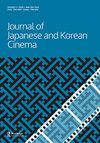Image Romanticism and Yakuza Cinema
引用次数: 1
Abstract
ABSTRACT Image Romanticism and Yakuza Cinema aims to do two things. One is to give a clear and readable introduction to ninkyō yakuza films as a genre, rerouting some of the more standard culturalist interpretations by focusing instead on questions of industry, medium, and image. The second is to situate that genre within a theoretical, historical, and political field I term ‘image romanticism.’ In particular, I draw attention to three elements that tie these two different orientations together: reciprocity of the face and gaze; ironic iconoclasm; and the abyss beyond words at the heart of cinematic experience. These foci help highlight concerns around genre, violence, beauty, sexuality, cinephilia, anti-modernism, and imperial history. The desire to liberate images from all external structuring forces at work – especially linguistic and discursive attempts to ground the images in something besides their own force – is at the heart of these films. In this, yakuza films become a site where the image of the outlaw becomes the image as the outlaw. The films thus function as crucial place for renegotiating relationships to technical images when the ground of cinema was shifting and increasingly uncertain.形象浪漫主义与黑帮电影
摘要意象浪漫主义和雅库扎电影的目的是做两件事。一个是对日本黑帮电影作为一种类型进行清晰易读的介绍,改变一些更标准的文化主义解释,转而关注行业、媒介和形象问题。第二种是将这种类型置于一个理论、历史和政治领域,我称之为“意象浪漫主义”特别是,我提请注意将这两个不同方向联系在一起的三个元素:面部和凝视的相互作用;讽刺性的偶像破坏者;以及电影体验核心的无法用语言表达的深渊。这些焦点有助于突出对流派、暴力、美、性、电影癖、反现代主义和帝国历史的关注。将图像从工作中的所有外部结构力量中解放出来的愿望,尤其是将图像建立在除自身力量之外的东西上的语言和话语尝试,是这些电影的核心。在这种情况下,黑帮电影成为了一个非法分子形象变成非法分子形象的场所。因此,在电影领域发生变化、越来越不确定的情况下,电影是重新谈判与技术图像关系的关键场所。
本文章由计算机程序翻译,如有差异,请以英文原文为准。
求助全文
约1分钟内获得全文
求助全文
来源期刊

Journal of Japanese and Korean Cinema
Arts and Humanities-Visual Arts and Performing Arts
CiteScore
0.60
自引率
0.00%
发文量
16
期刊介绍:
Journal of Japanese and Korean Cinema is a fully refereed forum for the dissemination of scholarly work devoted to the cinemas of Japan and Korea and the interactions and relations between them. The increasingly transnational status of Japanese and Korean cinema underlines the need to deepen our understanding of this ever more globalized film-making region. Journal of Japanese and Korean Cinema is a peer-reviewed journal. The peer review process is double blind. Detailed Instructions for Authors can be found here.
 求助内容:
求助内容: 应助结果提醒方式:
应助结果提醒方式:


